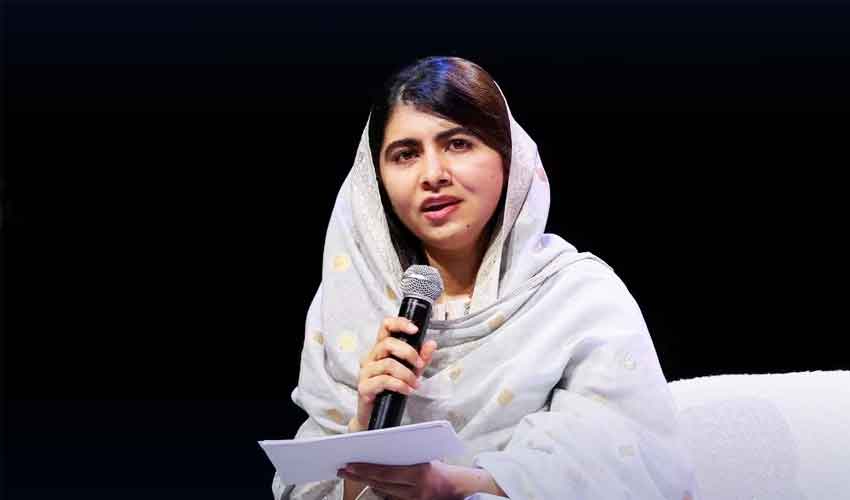Nobel Peace Prize recipient Malala Yousafzai drew a striking comparison between the Taliban's constraints on women in Afghanistan and the historical treatment of Black people during apartheid in a recent lecture held in South Africa by the Nelson Mandela Foundation.
Yousafzai, who survived an assassination attempt in Swat at the age of 15 due to her activism against the denial of education to girls by the Tehreek-e-Taliban Pakistan (TTP), has since become a prominent global symbol of women's resilience in the face of oppression.
"If you are a girl in Afghanistan, the Taliban has decided your future for you. You cannot attend a secondary school or university. You cannot find an open library where you can read. You see your mothers and your older sisters confined and constrained," Yousafzai said during the 21st Nelson Mandela Annual Lecture in Johannesburg.
At 26 years old, she cautioned against the normalisation of relations with the Afghan Taliban, emphasising the need for scrutiny, especially following their return to power in Afghanistan in 2021 after the withdrawal of U.S.-led forces following two decades of conflict.
Yousafzai said the Taliban's actions should be considered "gender apartheid" and that it had "in effect... made girlhood illegal".
A Taliban spokesperson did not immediately respond to a request for comment on Yousafzai's remarks.
Despite claims by the Taliban that they respect women's rights in alignment with their interpretation of Islamic law and Afghan customs, Yousafzai highlighted concerning developments since their return to power. These include the restriction of Afghan women from working at aid agencies, the closure of beauty salons, the prohibition of women from parks, and limitations on female travel without a male guardian.
In response to Yousafzai's remarks, a spokesperson for the Taliban did not immediately provide a comment. The Nobel laureate expressed her apprehension during an interview after the lecture, expressing concern that the Taliban's influence could extend to undermining sciences and critical thinking even among boys.
"It's so important for the international community to not only step up to protect access to education for girls but also ensure that it is quality education, it is not indoctrination," she said.
Yousafzai also touched on the ongoing conflict in Gaza, advocating for an immediate ceasefire and the restoration of normalcy for children, urging their return to school and regular lives. The interview underscored her broader commitment to addressing global challenges affecting the well-being and education of children, emphasizing the profound impact of conflicts on their daily lives.
She added: "We look at wars, ... especially the bombardment that has happened in Gaza, ... that has just taken that normal life away from children."



























